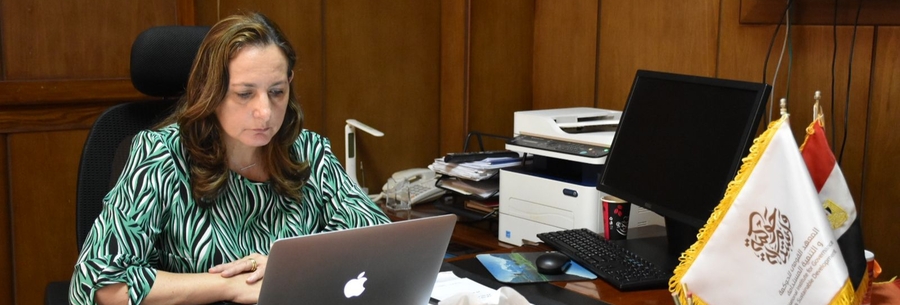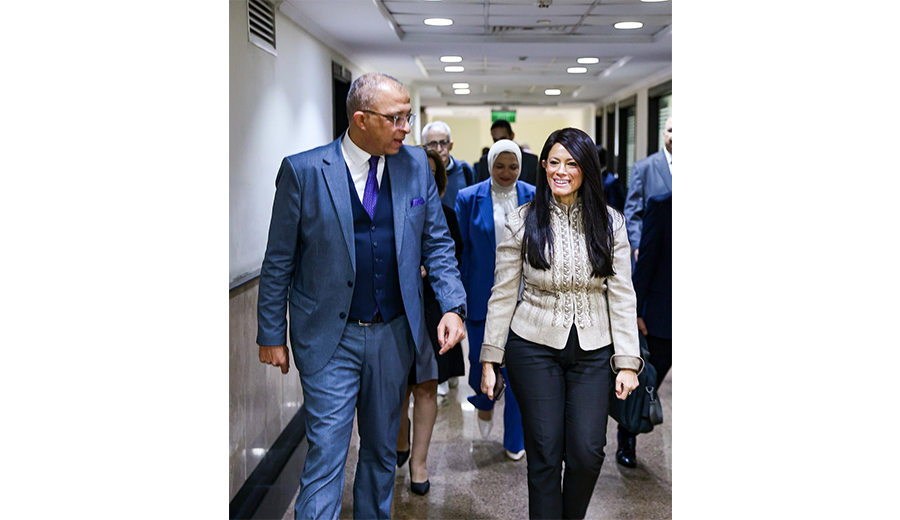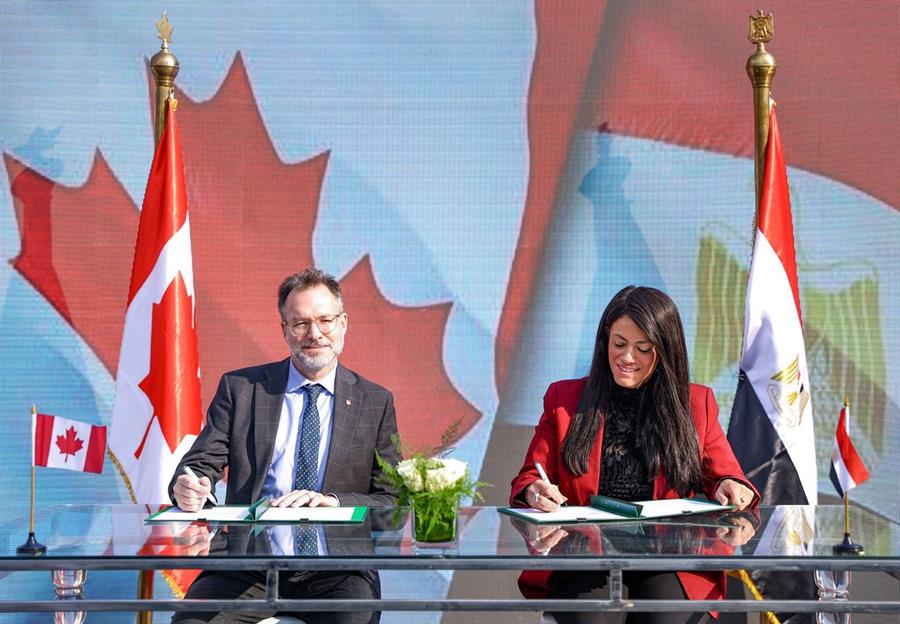Within the framework of cooperation with Hertie School of Governance in Germany: Egypt’s NIGSD Development holds a brainstorming session

22 October 2021
The National Institute for Governance and Sustainable Development (NIGSD), the training arm of the Ministry of Planning and Economic Development, held recently a brainstorming session, within the framework of cooperation with the Herite School of Governance in Germany, which began in November 2020. During her speech at the session, Dr. Sherifa El-Sharif, Executive Director of the National Institute for Governance and Sustainable Development (NIGSD), pointed to the importance of the institute forming partnerships with relevant local and international institutions to expand its expertise and benefit from the prestigious scientific institutions that have made great strides in the fields of training, capacity building, education, and research and consulting. El-Sherif explained the cooperation efforts between the Institute and Herite School of Governance, which lasted for a whole year, and the online courses that were implemented within the framework of this cooperation, stressing that the Institute will seek to disseminate them to a large number of civil servants.El-Sherif highlighted the issue of governance for sustainable development, stressing that governance is an essential tool to enable the implementation of Egypt's Vision 2030, as well as the implementation of the seventeen goals of sustainable development at the global level. El-Sherif noted the importance of advancing the capacity-building process.
In this context, a memorandum of understanding (MoU) will be signed very soon between NIGSD and Hertie School on governance and capacity building for civil servants in the Berlin campus.NIGSD had previously issued a report last August on the cooperation between the Institute and Hertie School of Governance in Germany, which included the achievement in 4 pillars of cooperation between the two sides, which include simplifying governance practices in public administration, with a focus on tools of self-diagnosis of the institution, and the importance of the capacity building of its employees.
The report indicated that the cooperation between the two sides resulted in 4 important results, represented in providing advice on the development of the strategy and vision of the National Institute for Governance and Sustainable Development.The second result was the preparation of the Standard Operating Procedures (SOP) manual as a guiding document for government entities, organizations, and various units to implement and support good governance standards. The guide also aims to simplify the standards and principles of global governance and includes a checklist for governance, which represents a self-diagnosis tool to examine the extent to which any entity or body complies with the standards of good governance.On the third result, the report explained that it is represented in providing technical support regarding the structure and methodology of the National Governance Index, as the university presented a preliminary wish list of the most important pillars and sub-indicators that should be based on to develop the index according to recent literature and a list of the most prominent available and reliable international indicators and their methodology.The institute also reviewed the proposed national indicator structure, and the fourth outcome included the preparation of the content of an electronic course entitled "Principles of Good Government for Sustainable Development Goals: From Theory to Practice". The Institute reviewed the currently available course entitled "Basics of Governance" on the educational platform of the Institute to complete it and submit a proposal for a more professional course focusing on sustainable development.









